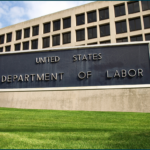![]() The National Labor Relations Board (“the Board”) continued its trend of broadening National Labor Relations Act (“the Act”) Section 7 protection for employees using social media in the recently decided Triple Play Sports Bar and Grille case. In that case, one former employee of the bar posted a “status update” on her Facebook page complaining that she owed money on her taxes because the bar failed to do the paperwork correctly. A list of comments to that post from disgruntled employees who also owed taxes ensued. Only two of the commenters, Spinella and Sanzone, were still employees of the bar at the time of their comments. Spinella merely selected the “like” option under the initial status update of the former employee complaining about owing taxes. On the other hand, Sanzone actually posted a comment, which said: “I owe too. Such an asshole.” Both Spinella and Sanzone were terminated for these actions.
The National Labor Relations Board (“the Board”) continued its trend of broadening National Labor Relations Act (“the Act”) Section 7 protection for employees using social media in the recently decided Triple Play Sports Bar and Grille case. In that case, one former employee of the bar posted a “status update” on her Facebook page complaining that she owed money on her taxes because the bar failed to do the paperwork correctly. A list of comments to that post from disgruntled employees who also owed taxes ensued. Only two of the commenters, Spinella and Sanzone, were still employees of the bar at the time of their comments. Spinella merely selected the “like” option under the initial status update of the former employee complaining about owing taxes. On the other hand, Sanzone actually posted a comment, which said: “I owe too. Such an asshole.” Both Spinella and Sanzone were terminated for these actions.
The Board ordered the bar to reinstate Spinella and Sanzone with backpay because terminating them for their Facebook activity was a violation of Section 7 in this instance. The Board explained its decision this way: “Where, as here, the purpose of employee communications is to seek and provide mutual support looking toward group action to encourage the employer to address problems in terms or conditions of employment, not to disparage its product or services or undermine its reputation, the communications are protected.” Further, the comments were not defamatory because they were not made with knowledge of their falsity or with reckless disregard of their falsity, thus they did not lose the protection of the Act.
Finally, the Board struck down the bar’s “Internet/Blogging” policy as overly broad and reasonably tending to chill employees in the exercise of their Section 7 rights because the policy prohibited “inappropriate” discussion about the company on social media. The Board found this “sufficiently imprecise” to find it unlawful.
Employers must proceed carefully in disciplining employees for their activity on social media as the Board continues to take a strict stance against it. Also, the struggle to draft a social media policy that protects the employer’s interest in order and loyalty while at the same time not infringing the ever-expanding Section 7 rights of employees continues to vex employers. These complex issues should be addressed with the advice and help of counsel.
For more information about this or any related legal matter, please contact any member of the KDDK Labor & Employment Law Practice Team.





